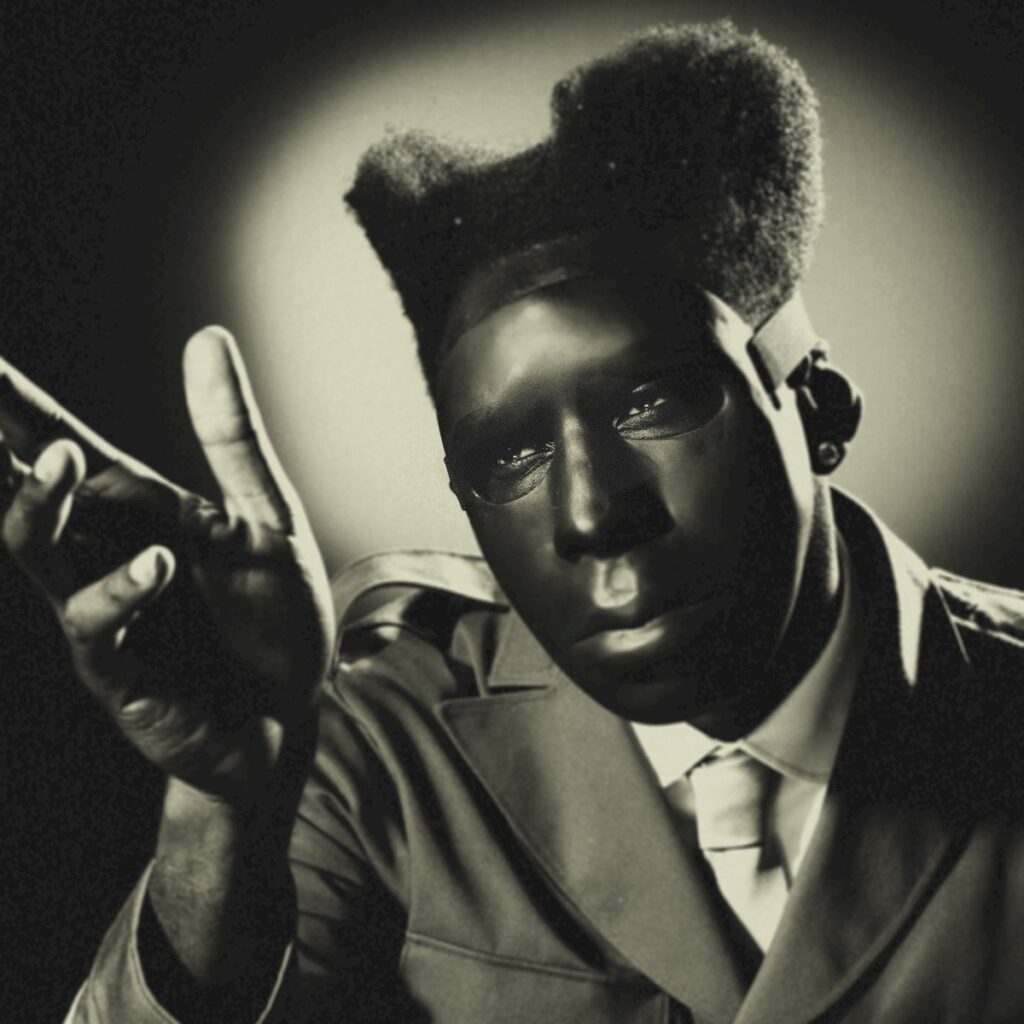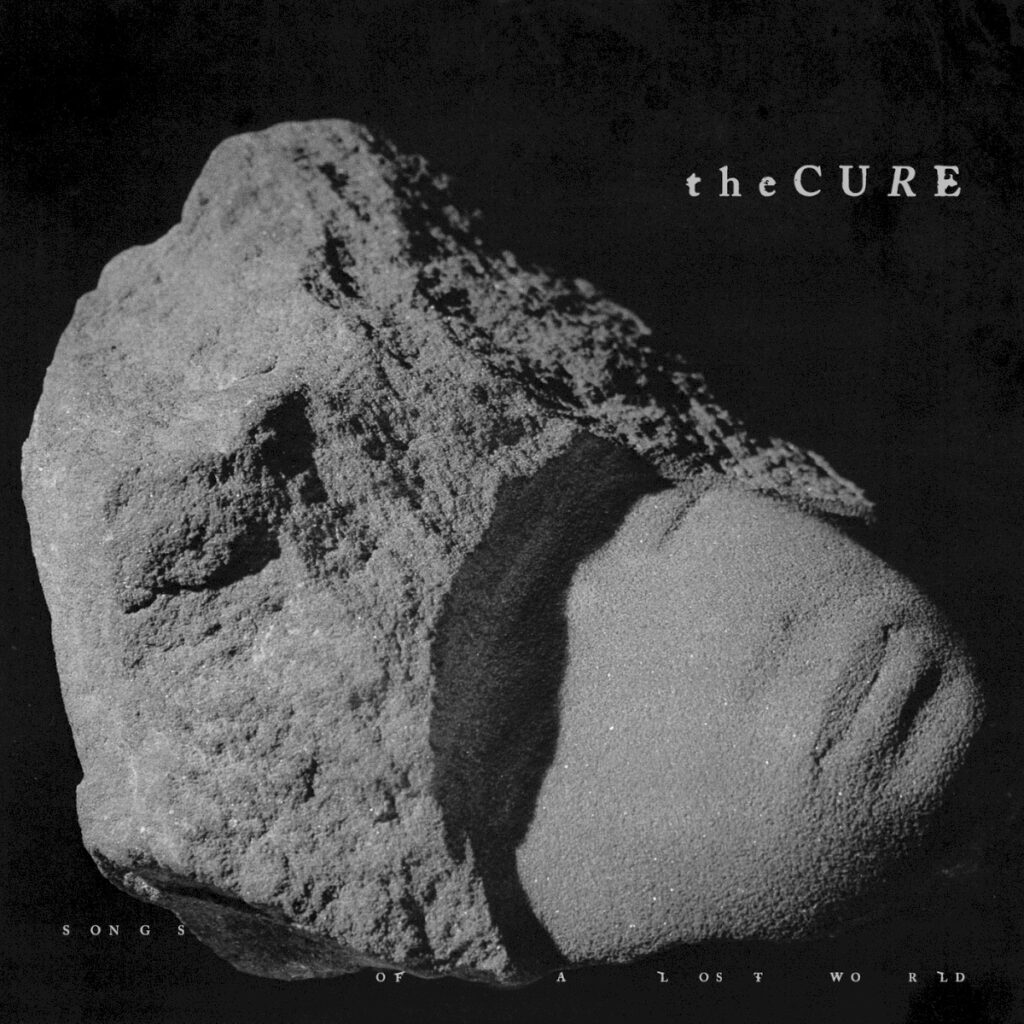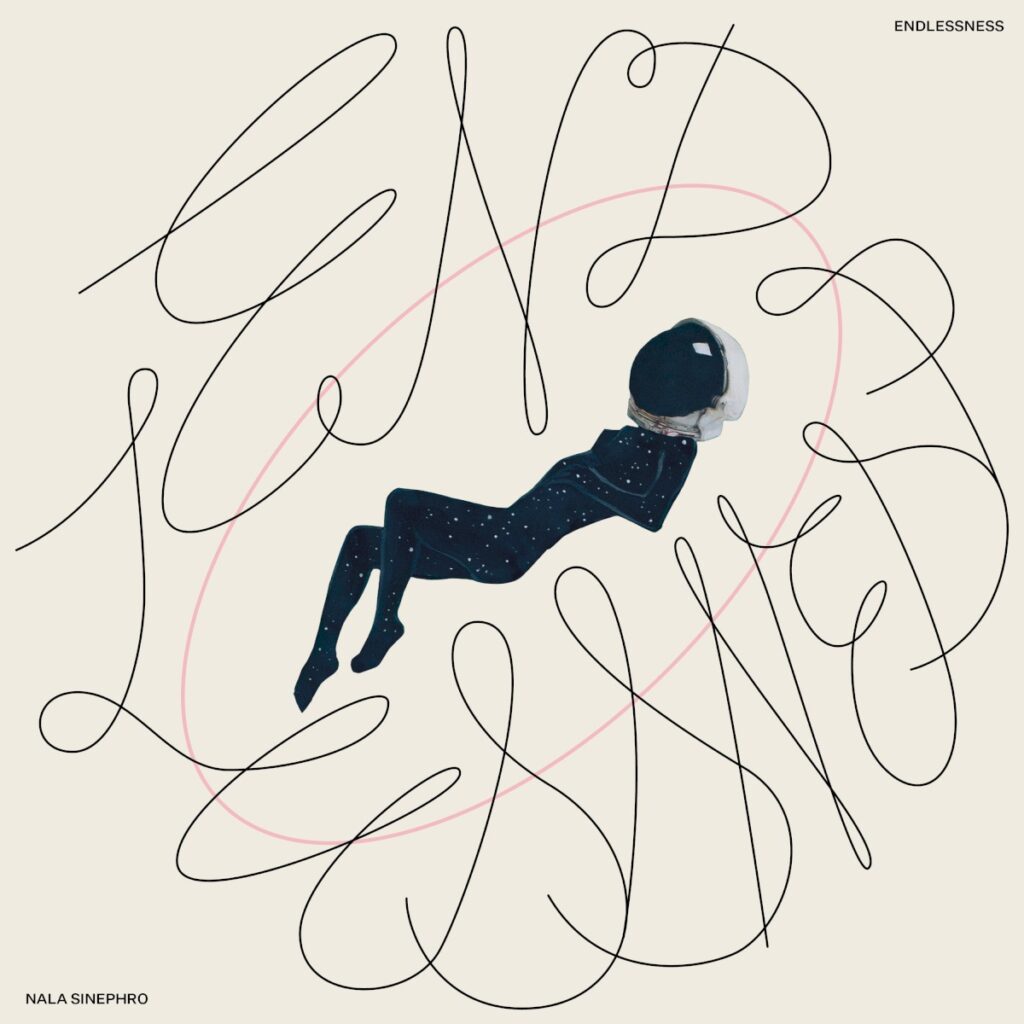Previously,
The Best 25 Albums of 2024: My Picks #25-21
20.
Tyler, the Creator, ‘Chromakopia’

Tyler’s eighth studio project, Chromakopia, serves as a narrative sequel of sorts, following Tyler’s creative expanse from previous works such as Flower Boy (2017), IGOR (2019), and Call Me If You Get Lost (2021). Through the persona of “St. Chroma,” America’s modern-day musical auteur explores the paradoxes of success, the hauntings of childhood memories, and his encounters with interpersonal relationships. The album is intricately brought to life by the voice of his mother, Bonita Smith, narrating interludes that bridge the tracks, providing a poignant diary-like structure. A central thematic concern across Chromakopia is Tyler’s exploration of identity and mental health, coupled with broader reflections on life’s many complexities. Tracks such as Rah Tah Tah and Thought I Was Dead underscore this contemplative journey, with Tyler channeling feelings of inadequacy and the pressurized environment of success. There’s a blending of humor with sincerity, demonstrating Tyler’s adeptness at juxtaposing contrasting emotions and creating a multifaceted listener experience. In Chromakopia, Tyler, The Creator once again blurs the line between genres, merging R&B, jazz, neo-soul, and traditional hip-hop with a flair reminiscent of his previous projects like Flower Boy. Military cadences, neo-soul melodies, and synthesizer arrangements enrich the soundscape, offering captivating variations in tone that work both independently and as part of a cohesive sonic narrative. Standout tracks such as St. Chroma and Noid highlight Tyler’s mastery in eclectic sonic arrangements. St. Chroma engages listeners with swirling synths and atmospheric sounds, while Noid contrasts these elements with driving beats and experimental instrumentals.
19.
Ariana Grande, ‘eternal sunshine’

Ariana Grande’s seventh studio album, Eternal Sunshine, reveals a new facet of the artist that fans and critics have eagerly anticipated, arriving as her first concept album following a four-year hiatus since Positions. The title, Eternal Sunshine, pays homage to the 2004 film Eternal Sunshine of the Spotless Mind. The film explores themes of love, loss, and forgetfulness, where the protagonists opt to erase memories of their relationship after a breakup. Similarly, Grande’s album delves into the emotional complexities of relationships, highlighting the dichotomy of holding onto the past while navigating a path toward self-awareness and acceptance. Tracks like Eternal Sunshine and Supernatural provide insights into her emotional landscape, reflecting on past pains and future aspirations. In Saturn Returns Interlude, a track that transitions into the titular song, Grande hints at themes of betrayal and self-discovery, possibly referencing her marital experiences. Here, she uses reflective lyricism that resonates with listeners experiencing similar life transitions. The lyrics of “Imperfect for You” explore themes of self-acceptance and growth, offering a deeply personal view into her journey of healing and becoming whole again. The album is a sonic tapestry that features a blend of pop, R&B, synth-pop, and house influences. Producers like Max Martin and Ilya Salmanzadeh, long-time collaborators with Grande, bring a Swedish pop sensibility to the tracks. This creates a cohesive sound characterized by mid-tempo synths, subtle guitar lines, and enveloping string arrangements. The album also draws on influences from late 90s and early 2000s R&B, while infusing contemporary electronic elements reminiscent of disco and house music.
18.
The Cure, ‘Songs Of A Lost World’

Songs Of A Lost World is The Cure’s first full release of new material after a 16-year hiatus since their last album 4:13 Dream in 2008. Songs Of A Lost World is a grandeur work characterized by exploring universal themes of loss, anger, mortality, and introspection. Robert Smith, the band’s iconic frontman and primary songwriter, delves deep into his personal experiences, particularly the grief stemming from the loss of his parents and sibling, which cast a long shadow over the songs. From the opening track Alone, which begins with the poignant line “This is the end of every song that we sing,” to the closing Endsong, these themes create a cohesive narrative of reflection and acceptance. This thematic maturity suits The Cure, after all, they are a band whose music has long dwelled on existential and melancholic subjects. Robert Smith’s lyrics capture the bittersweet recognition of the inevitability of change and the inexorable passage of time. In Alone, he sings “The birds, falling out of our skies/And the words, falling out of our minds,” depicting an existential drift. In A Fragile Thing, Smith’s words echo a mantra of acceptance in the face of mortality: “Nothing you can do to change the end.” Songs Of A Lost World features an intricate fusion of post-punk and gothic influences, maintaining The Cure’s signature atmospheric soundscapes. The instrumentation is richly layered, with Reeves Gabrels’ debut on guitar bringing a psychedelic edge to the mix. The album’s arrangement is marked by a velvety softness that envelops the listener. The guitars are ethereal, leaving auditory traces, while the keyboards shimmer with a haunting presence. The rich sonic layers feel like a nod to The Cure’s past albums, particularly Disintegration and Pornography. The album does not resort to excessive embellishments, instead opting for a sound that feels both grand and restrained.
17.
Nala Sinephro, ‘Endlessness’

At the heart of Endlessness lies a thematic exploration of the cyclical nature of existence, a concept powerfully executed through the album’s ten tracks, each titled Continuum. This framework not only reflects the continuity and flow of life but also challenges the listener to ponder deeply on notions of existence and rebirth. The album has been compared to spiritual projects like Alice Coltrane’s Journey in Satchidananda, emphasizing transcendental meditation on profound human experiences. The overarching theme of cosmic cycles is mirrored in the album’s sonic construction as well. Each Continuum embarks on a journey through Sinephro’s meticulously crafted sonic ecosystem, where electric and acoustic elements coalesce into a symphonic jazz suite of grand proportions. The composition of Endlessness is built on a musical foundation of arpeggios that acts as a gentle beacon, appearing and disappearing throughout the album, inviting musicians to respond with subtlety and creativity. The album oscillates between moments of serene calm and intense dynamism, presenting an intricate balance of ambient textures and jazz improvisation. Tracks like Continuum 2 and Continuum 6 illustrate this dynamic range, transitioning from lush orchestral arrangements to animated, groove-laden segments. In the broader context of contemporary jazz, Endlessness aligns with the movement towards more spiritual and introspective motifs. It resonates with audiences’ increasing demand for music that offers a form of healing and contemplation, akin to projects by fellow jazz innovators like Shabaka Hutchings and Alabaster Deplume.
16.
Nilüfer Yanya, ‘My Method Actor’

My Method Actor is a testament to Nilüfer Yanya’s growth as an indie artist. It combines introspective songwriting with themes of self-awareness, emotional growth, and romantic entanglements, where Yanya examines the duality of one’s internal and external personas. My Method Actor thrives on the central metaphor of method acting, which offers a lens through which the emotional undertones of the album can be understood. Yanya draws a parallel between the immersive process of method acting and her approach to creating music, which involves mining life-altering moments to inject authenticity and emotion into her work. This introspective methodology underscores the album’s narrative structure, facilitating a deeper exploration of themes like mortality and personal identity. The album’s thematic journey unfolds as an emotional narrative, with each track representing a new scene in Yanya’s ongoing quest for self-discovery. These motifs are vividly expressed through tracks like Keep On Dancing and Method Actor, which deal explicitly with themes of change and self-exploration. Yanya’s ability to fuse genres is exemplified in My Method Actor, as the album fluidly navigates various sonic terrains — from understated acoustics to grunge-laden sections. The guitar work—ranging from soft, acoustic stretches to bold, electric fuzz—plays a pivotal role in this dynamic. Tracks like Like I Say (I Runaway) and Keep On Dancing highlight this intricate interplay between sparse arrangements and richer textures. Yanya displays a careful balance between the minimal and the lush, allowing tracks to breathe while also layering them with her smooth delivery and emotive depth. Tracks like Binding offer a minimalistic approach, stripping down to the bare essentials while preserving the song’s emotional weight.
Continue Reading:
The Best 25 Albums of 2024: My Picks #15-11
The Best 25 Albums of 2024: My Picks #10-6
The Best 25 Albums of 2024: My Picks #5-1